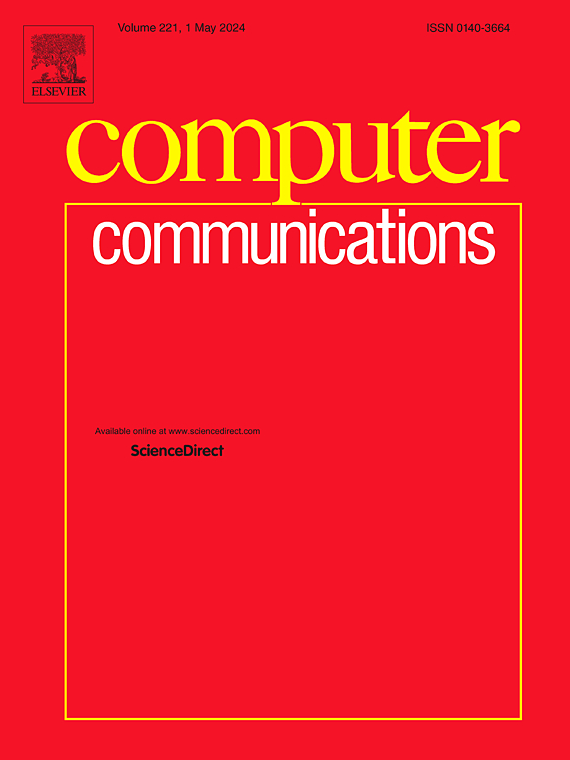LEBFL:基于AIoT的车路协同系统中区块链联合学习的轻量级认证和高效共识
IF 4.3
3区 计算机科学
Q1 COMPUTER SCIENCE, INFORMATION SYSTEMS
引用次数: 0
摘要
人工智能物联网(AIoT)技术正在逐步克服车路协同系统中交通数据传输和处理的挑战。然而,车路协同网络的动态性和开放性使其容易受到潜在攻击,攻击者可能会拦截或篡改传输的局部模型参数,从而损害模型的完整性并泄露用户隐私。尽管差分隐私和加密等现有解决方案可以解决这些问题,但它们可能会降低数据可用性或增加计算复杂性。为了应对这些挑战,我们为车路合作系统(LEBFL)中的区块链联合学习提出了一种轻量级认证和高效共识,它提供了轻量级隐私增强认证和高效共识,同时确保了本地模型和数据集的隐私。具体来说,我们首先引入了一个基于区块链的联邦学习架构,利用联盟区块链取代集中式服务器,增强隐私和高效共识。随后,我们设计了一个轻量级的匿名认证和密钥协议,使用高效的加密原语来建立本地模型传输的安全会话密钥。此外,我们提出了一种基于效用的Raft共识算法,该算法利用资源矩阵和权向量选择最优的雾服务器作为领导节点,并利用雾服务器的空闲计算资源来提高区块链网络的性能。安全性分析和实验结果证实了该方案在不牺牲安全性的前提下具有优越的性能。本文章由计算机程序翻译,如有差异,请以英文原文为准。
LEBFL: Lightweight authentication and efficient consensus for blockchained federated learning in vehicle–road cooperation systems with AIoT
Artificial Intelligence Internet of Things (AIoT) technology is gradually overcoming challenges related to traffic data transmission and processing in vehicle-road cooperative systems. However, the dynamism and openness of the vehicle-road cooperative networks make it susceptible to potential attacks, where attackers might intercept or tamper with transmitted local model parameters, thereby compromising the integrity of the models and leaking user privacy. Although existing solutions such as differential privacy and encryption can address these issues, they may reduce data availability or increase computational complexity. To tackle these challenges, we propose a lightweight authentication and efficient consensus for blockchained federated learning in vehicle–road cooperation systems(LEBFL), which provides lightweight privacy-enhanced authentication and efficient consensus while ensuring the privacy of local models and datasets. Specifically, we first introduce a blockchain-based federated learning architecture that enhances privacy and efficient consensus, utilizing the consortium blockchain to replace the centralized server. Subsequently, we design a lightweight anonymous authentication and key agreement protocol using efficient cryptographic primitives to establish secure session keys for the transmission of local models. Furthermore, we propose a utility-based Raft consensus algorithm, which selects the optimal fog server as the leader node using a resource matrix and weight vector, and enhances the performance of the blockchain network by leveraging the idle computing resources of fog servers. Security analysis and experimental results confirm that the proposed scheme shows superior performance without sacrificing security.
求助全文
通过发布文献求助,成功后即可免费获取论文全文。
去求助
来源期刊

Computer Communications
工程技术-电信学
CiteScore
14.10
自引率
5.00%
发文量
397
审稿时长
66 days
期刊介绍:
Computer and Communications networks are key infrastructures of the information society with high socio-economic value as they contribute to the correct operations of many critical services (from healthcare to finance and transportation). Internet is the core of today''s computer-communication infrastructures. This has transformed the Internet, from a robust network for data transfer between computers, to a global, content-rich, communication and information system where contents are increasingly generated by the users, and distributed according to human social relations. Next-generation network technologies, architectures and protocols are therefore required to overcome the limitations of the legacy Internet and add new capabilities and services. The future Internet should be ubiquitous, secure, resilient, and closer to human communication paradigms.
Computer Communications is a peer-reviewed international journal that publishes high-quality scientific articles (both theory and practice) and survey papers covering all aspects of future computer communication networks (on all layers, except the physical layer), with a special attention to the evolution of the Internet architecture, protocols, services, and applications.
 求助内容:
求助内容: 应助结果提醒方式:
应助结果提醒方式:


